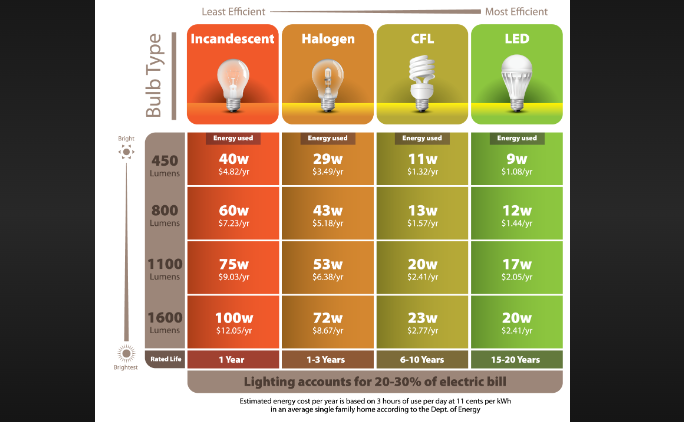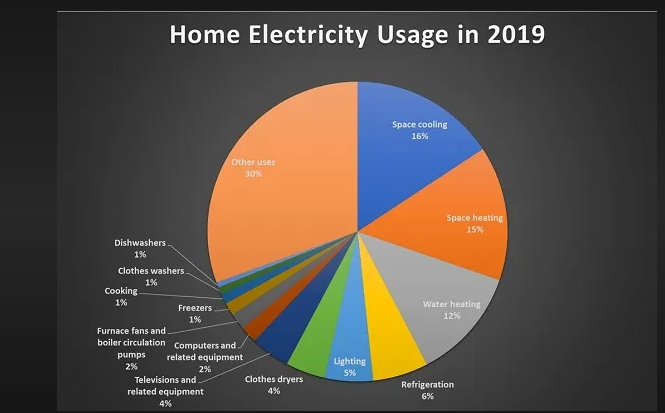Unveiling Energy Consumption: How Many Volts Does a House Use Per Day?
Electricity powers our modern lives, fueling our homes with the energy needed to light up our spaces, run appliances, and charge our devices. Curiosity about energy consumption often leads to questions like, "How many volts does a house use per day?" In this article, we'll shed light on the concept of energy consumption, break down the terminology, and provide insights into the factors that determine a house's daily electricity usage.

How many volts does a house use per day?
1. Understanding Electricity Consumption
Before we delve into the question of how many volts a house uses per day, it's crucial to understand the terminology associated with electricity consumption:
1.1. Volts (V):
Volts are a unit of measurement for electric potential difference, commonly known as voltage. Voltage represents the force that pushes electric current through conductors, such as wires, to power electrical devices.
1.2. Watts (W):
Watts measure the rate at which electrical energy is consumed or produced. It's a measure of power and reflects how much energy is used or generated per unit of time.
1.3. Kilowatt-Hours (kWh):
Kilowatt-hours are a measure of energy consumption. One kilowatt-hour is equal to using one kilowatt of power for one hour.
2. Energy Consumption in a House
Electricity consumption in a house varies based on a multitude of factors, including the size of the house, the number of occupants, the types of appliances used, and personal habits.
Instead of measuring in volts, energy consumption is often quantified in kilowatt-hours.
3. Factors Affecting Energy Consumption:
Several factors influence how much electricity a house uses per day:
3.1. Household Size:
The number of people living in a house impacts energy consumption. More occupants typically result in higher energy usage due to increased lighting, appliance usage, and device charging.
3.2. Types of Appliances:
Appliances such as refrigerators, air conditioners, heaters, and washing machines consume varying amounts of electricity. Energy-efficient appliances can significantly reduce consumption.
3.3. Lighting:
The type of lighting used, such as traditional incandescent bulbs versus energy-efficient LED bulbs, affects energy usage. LED bulbs consume less energy and last longer.
3.4. Heating and Cooling Systems:
Heating and cooling systems, like HVAC units, consume substantial energy. Proper insulation and thermostat settings can help manage consumption.
3.5. Electronics and Devices:
The proliferation of electronic devices, from smartphones to computers, contributes to energy consumption. Unplugging devices when not in use helps reduce "phantom" energy usage.
3.6. Energy Efficiency Practices:
Practices like turning off lights when not needed, using power strips to prevent standby power, and maintaining appliances can collectively lower energy consumption.
4. Calculating Daily Energy Consumption
To estimate daily energy consumption, you can follow these steps:
-
Identify Appliances: List the appliances and devices you use daily, along with their power ratings in watts.
-
-
Calculate Usage Time: Estimate the number of hours each appliance is used daily.
-
-
Convert to Kilowatt-Hours: Divide the appliance's power rating in watts by 1000 to convert it to kilowatts. Multiply this by the daily usage time to get the daily energy consumption in kilowatt-hours.
-
-
Total Consumption: Sum up the daily energy consumption of all appliances to get the total daily energy usage of your house.
5. Energy Conservation and Awareness
Understanding your household's energy consumption is an essential step towards energy conservation.
By being mindful of your energy usage, adopting energy-efficient practices, and making informed choices about appliances, you can contribute to reducing your environmental footprint and lower your energy bills.

Home electricity usage in 2019
While the question of how many volts a house uses per day may not be the most accurate way to measure energy consumption, understanding energy usage in terms of kilowatt-hours is vital. Factors such as household size, types of appliances, and energy-efficient practices significantly impact daily energy consumption. By becoming aware of your energy habits and making conscious choices, you can not only manage your energy bills but also contribute to a more sustainable future.